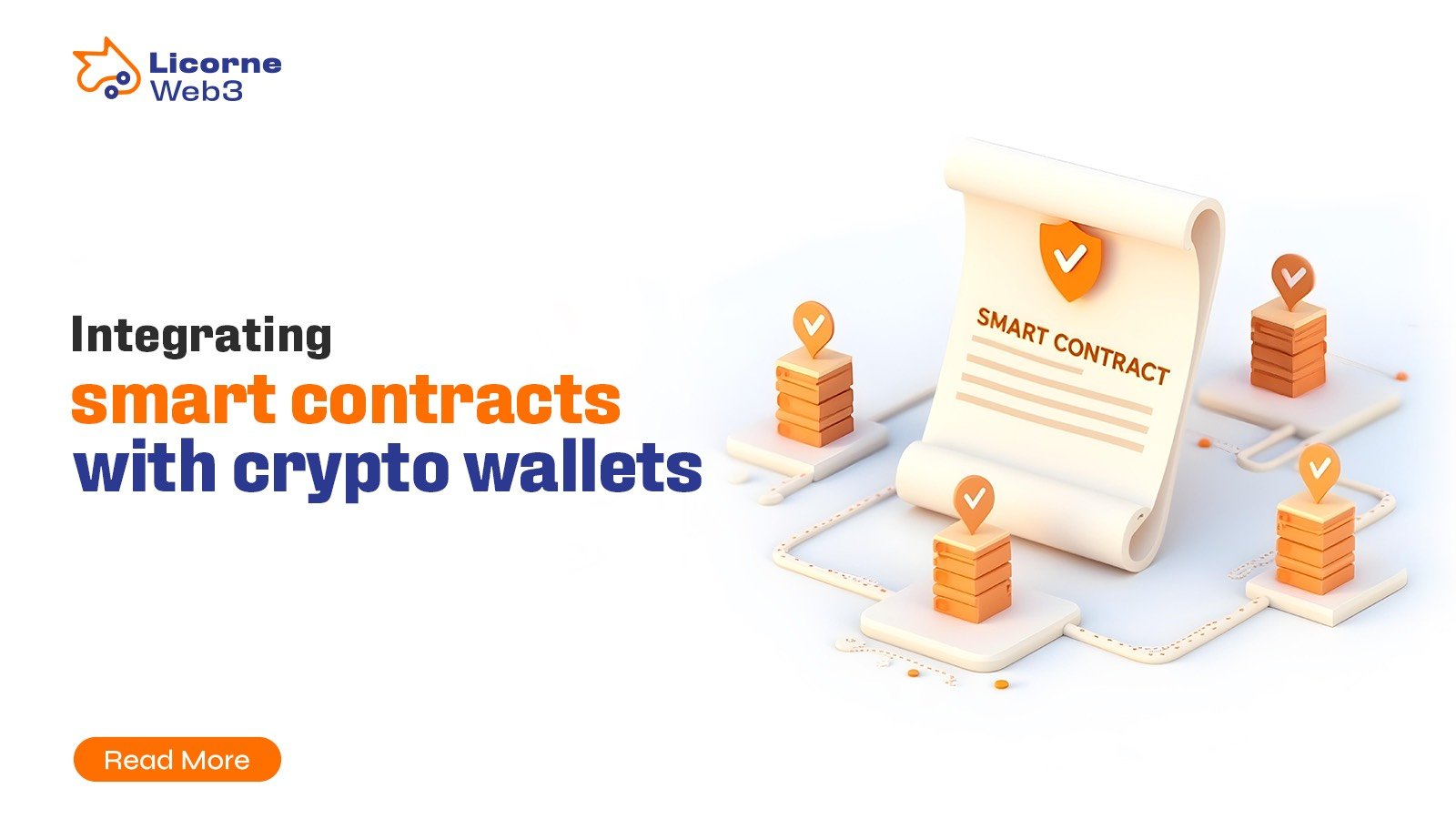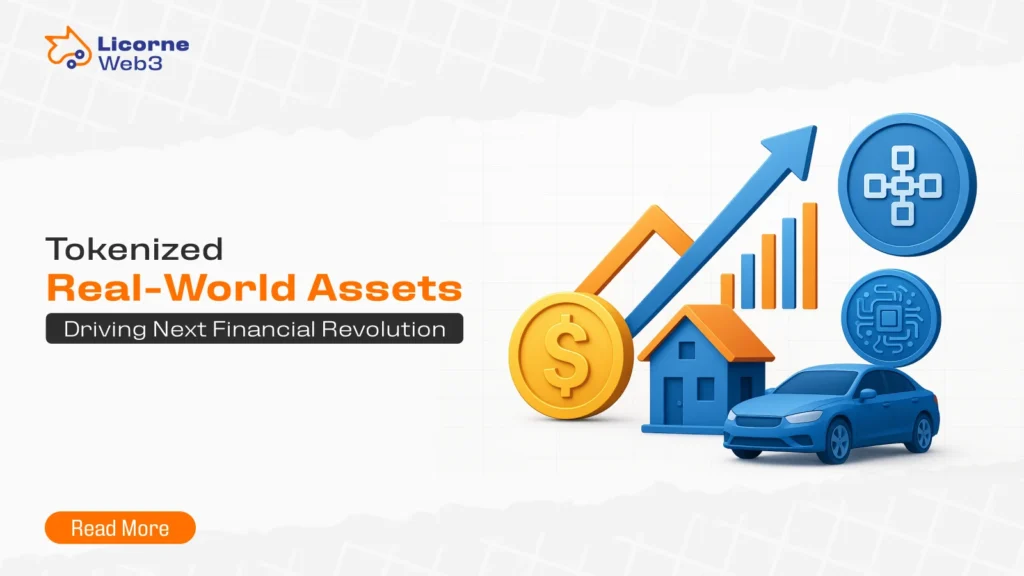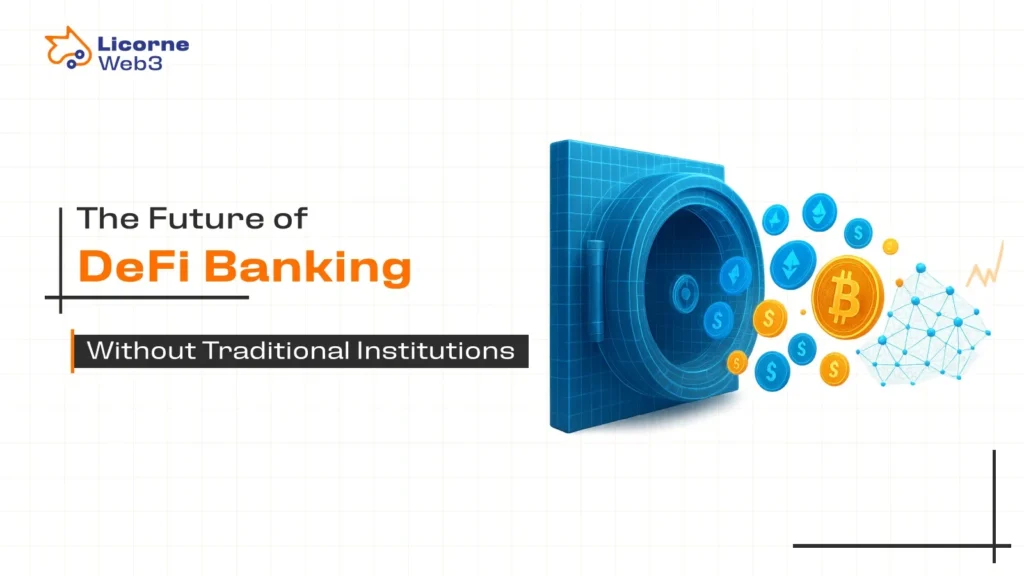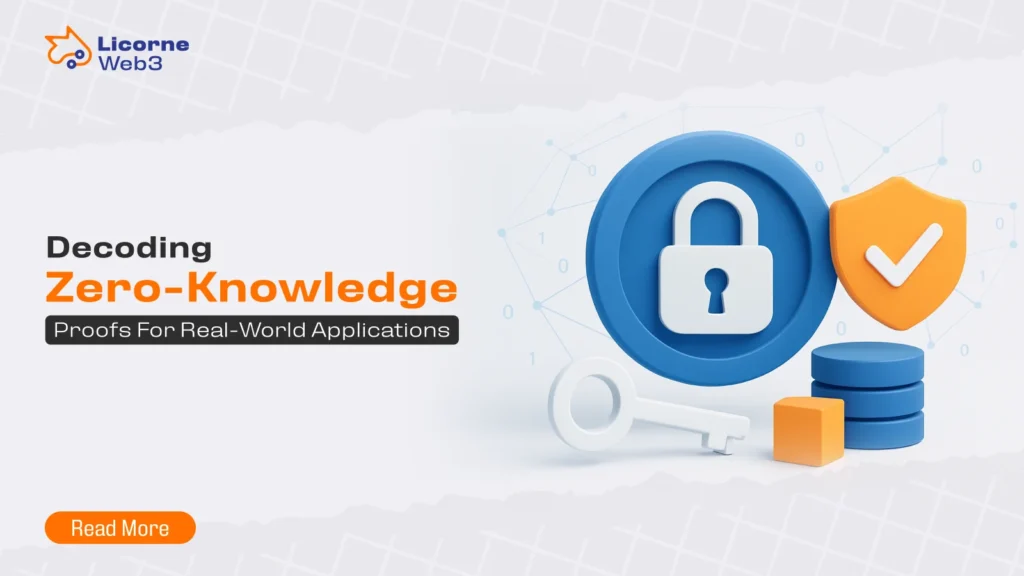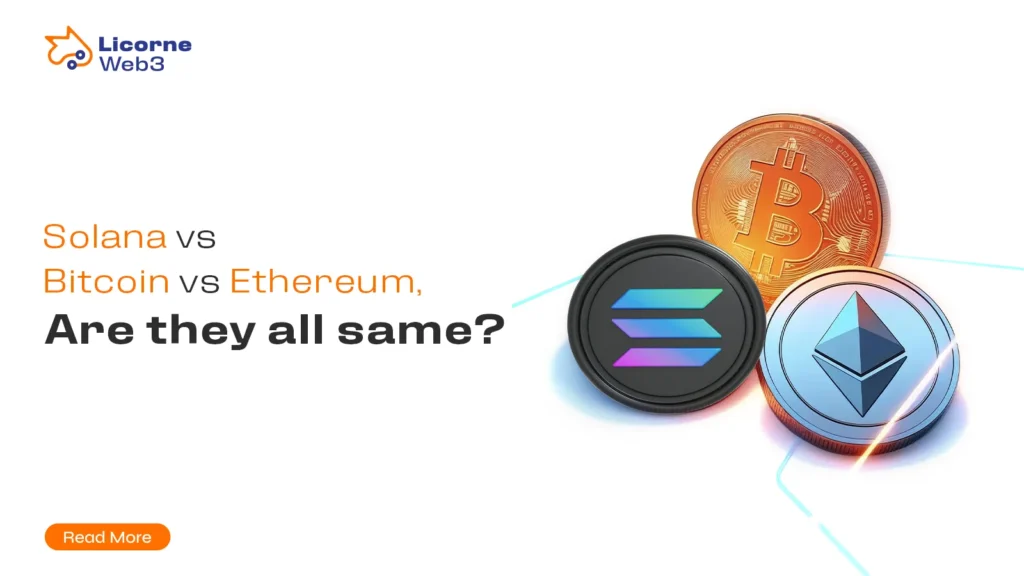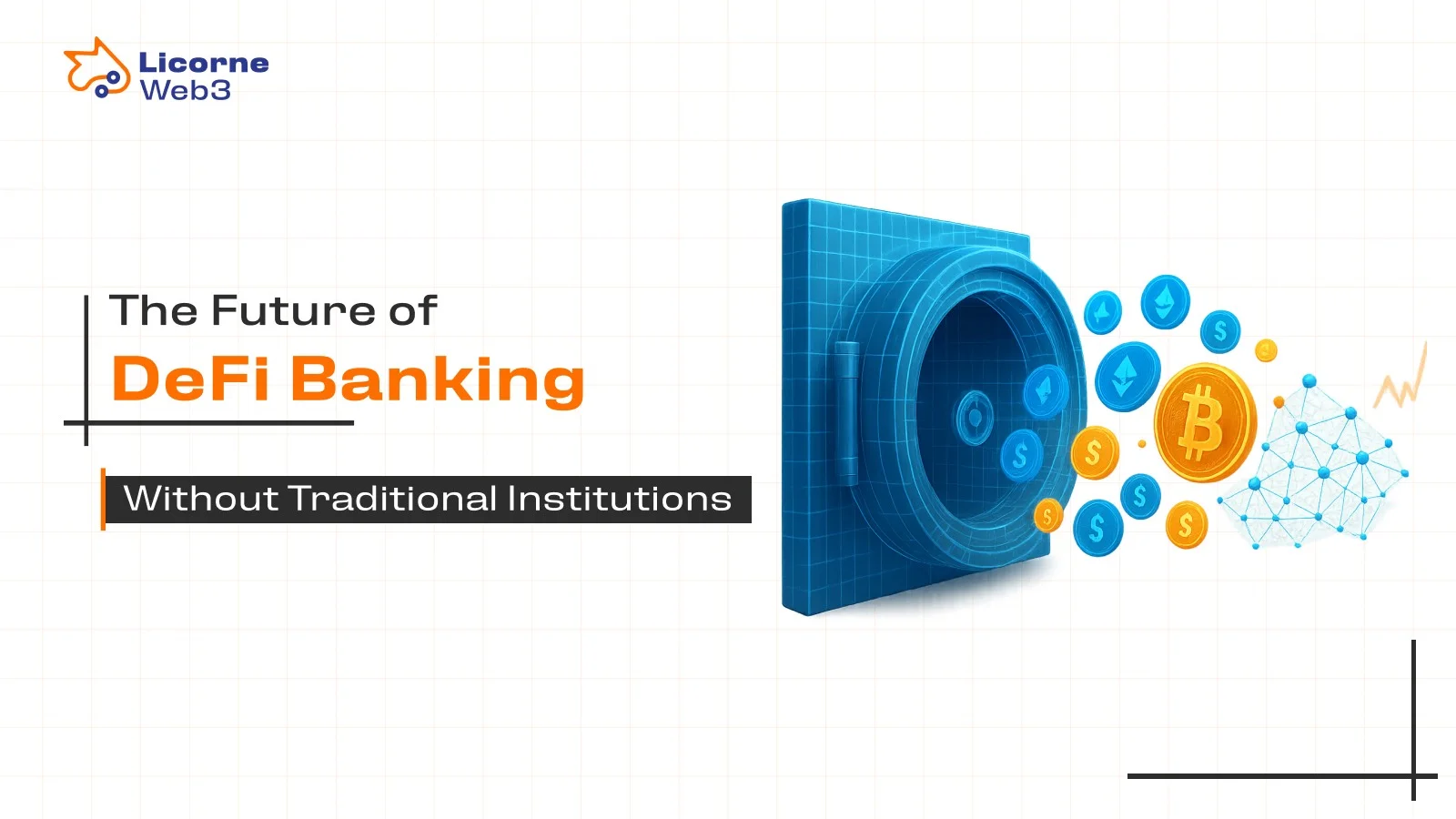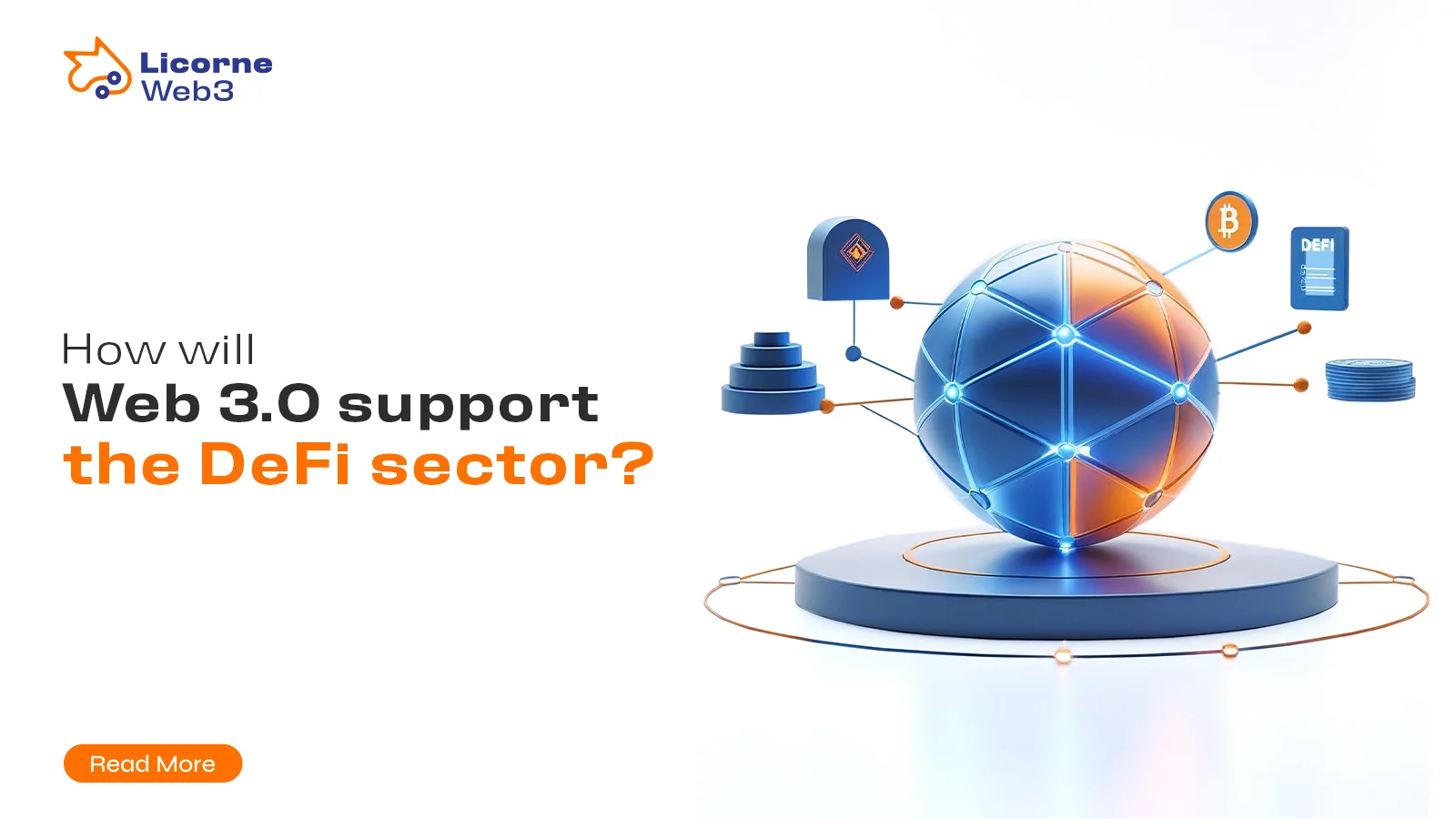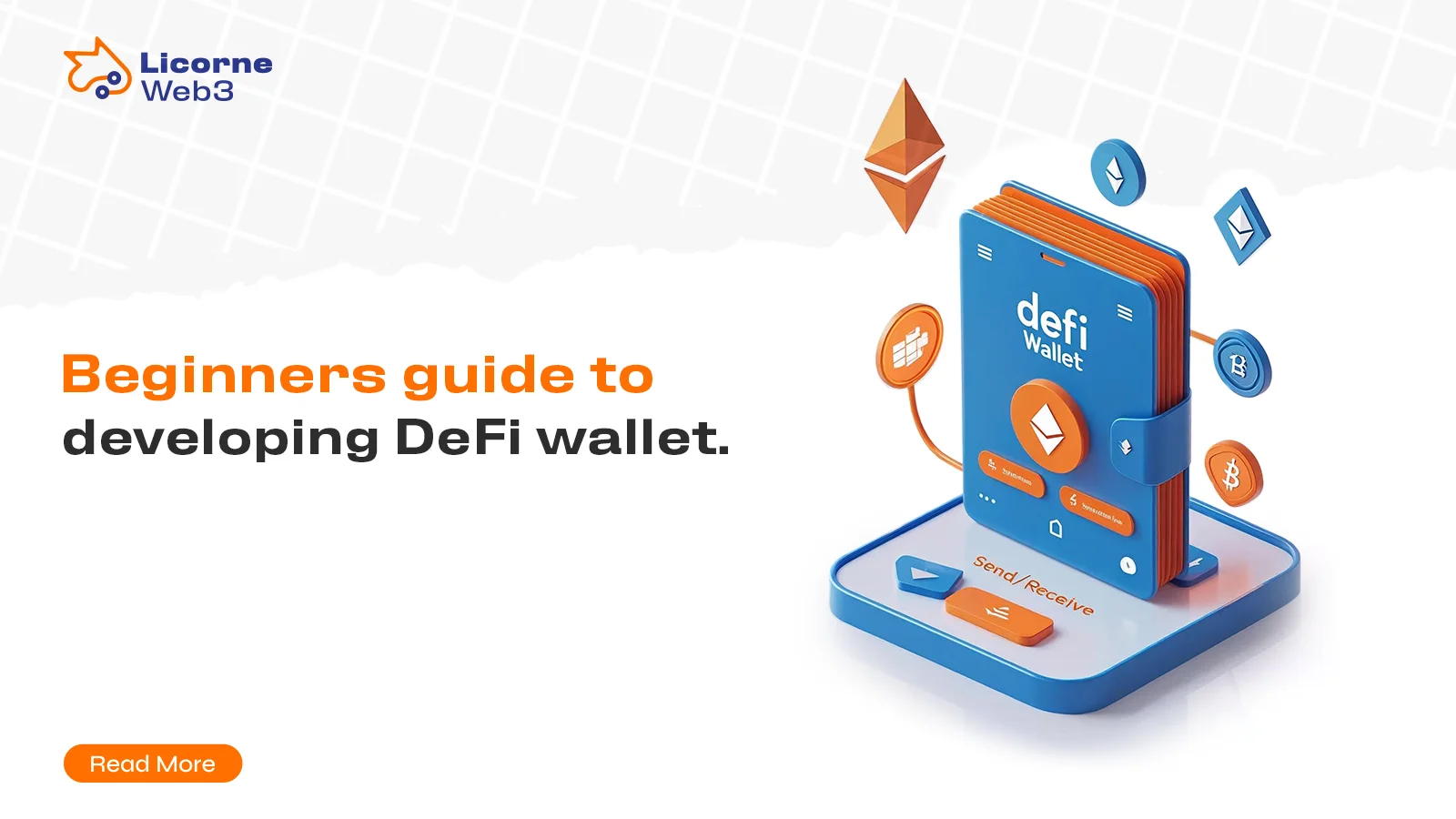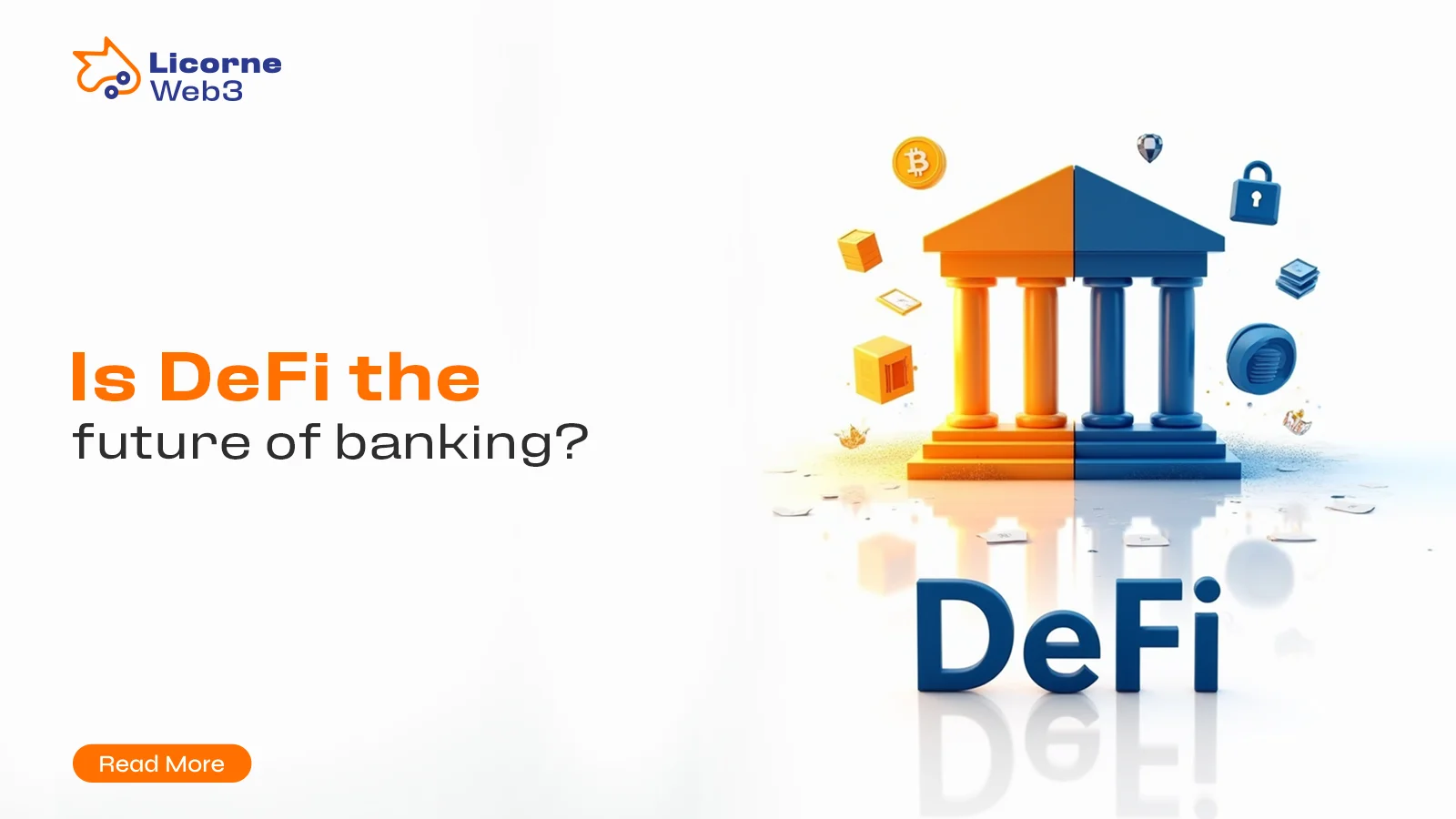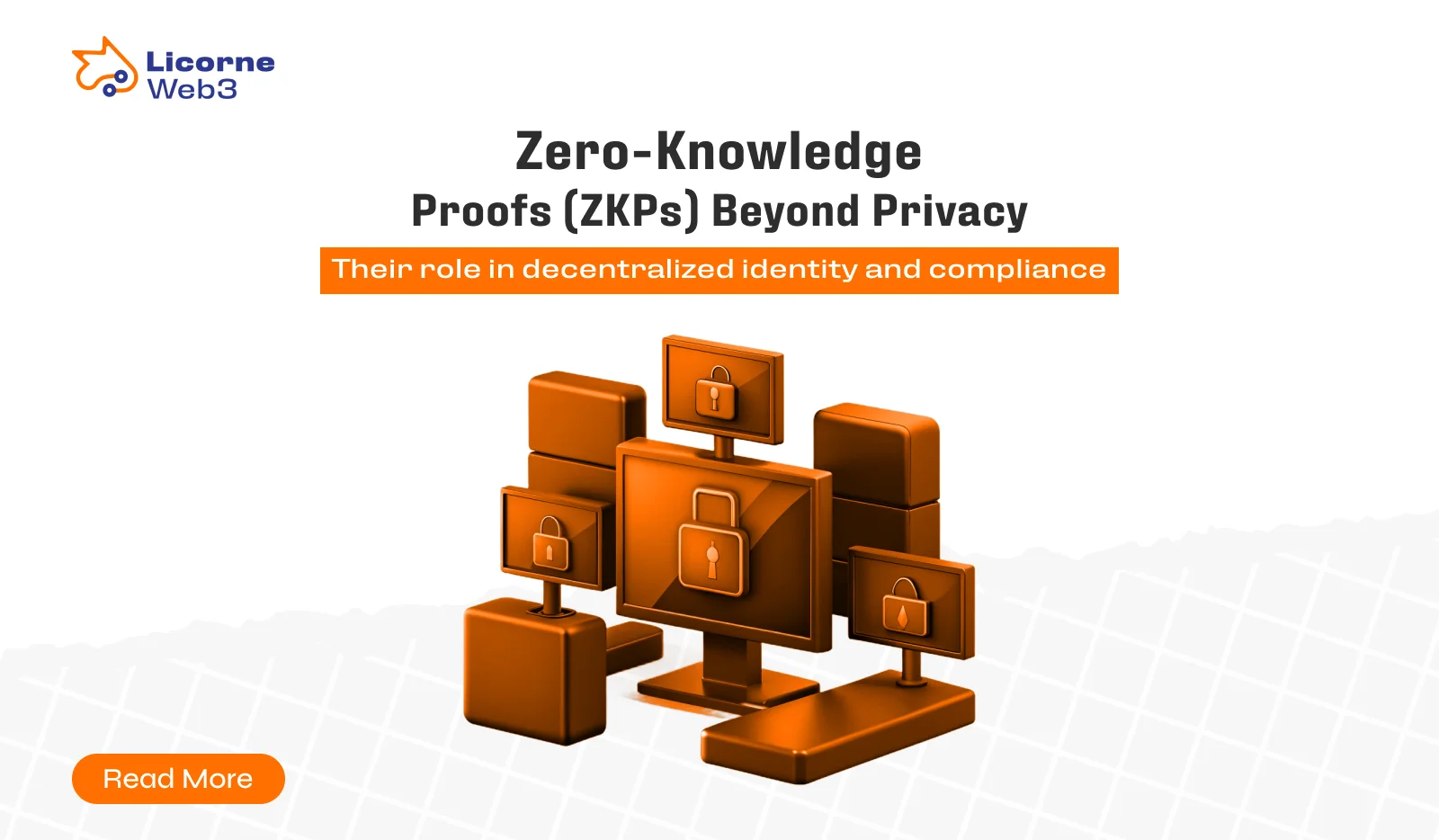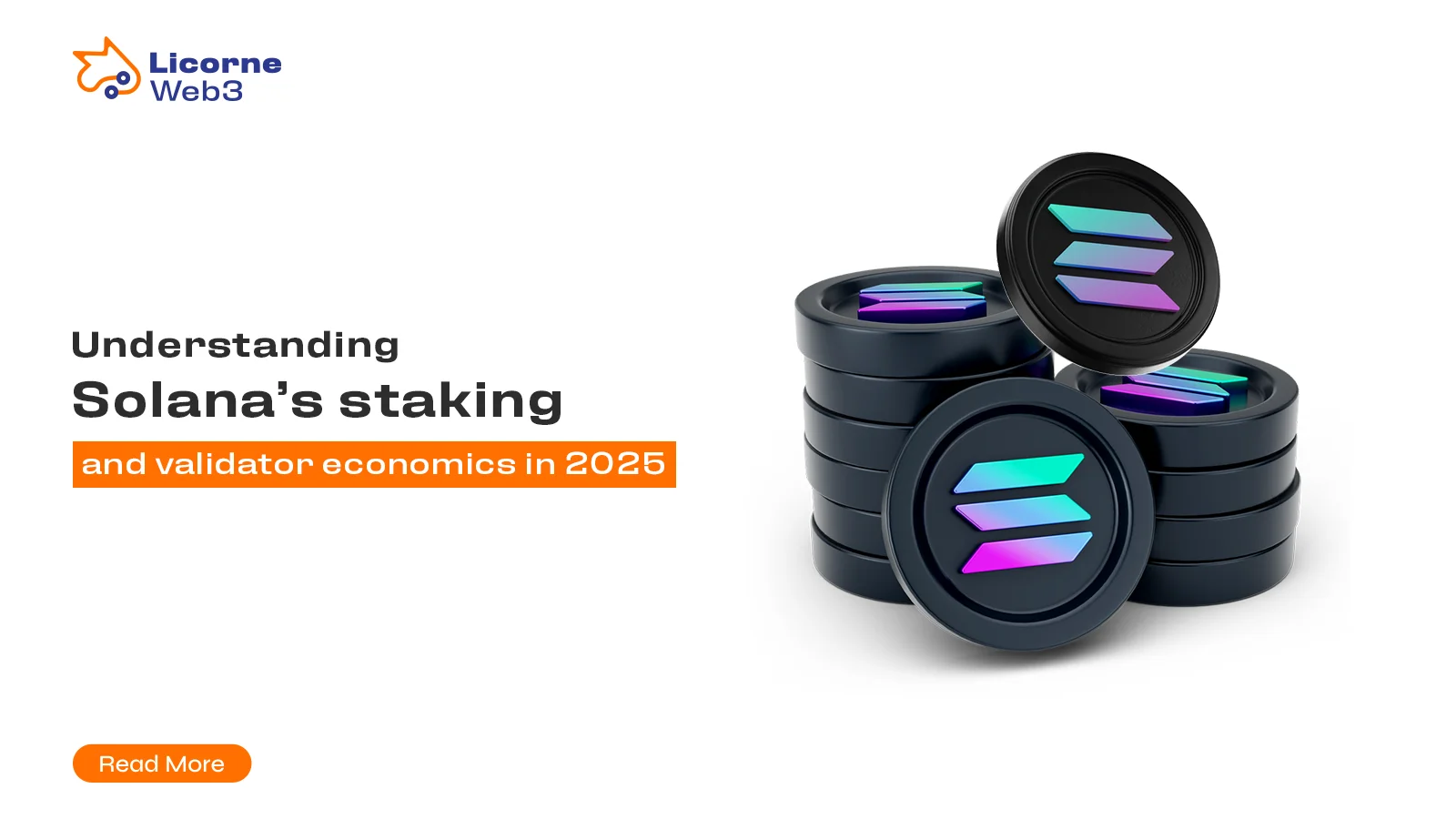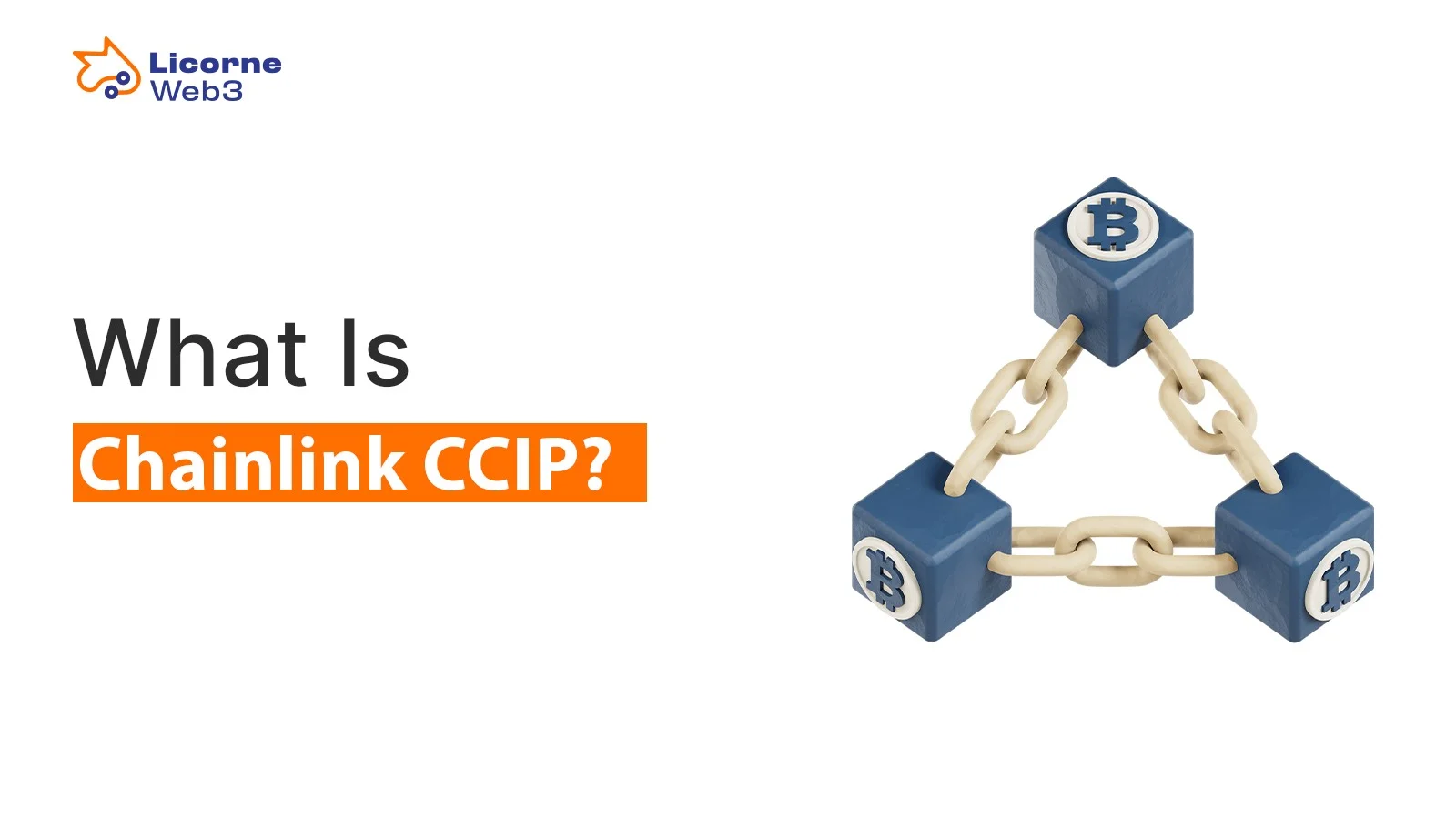Cryptocurrency operations become transformative through self-executing contracts, which facilitate autonomous financial transactions between parties, eliminating the need for trust-based intermediaries. The absence of intermediaries leads to quicker operations, reduced transaction fees, and improved efficiency. These digital agreements enhance security by implementing smart contract code, ensuring that transactions are securely processed without external oversight.
The new system allows users to access financial solutions using advanced features integrated with decentralized applications (DApps), enabling complex transactions with ease. Unlike a traditional wallet, which relies on centralized institutions, this approach leverages automation to provide seamless and secure asset management. Traditional contracts often require manual verification, but blockchain-based solutions streamline operations, increasing transparency and trust.
This blog demonstrates how blockchain transactions link self-executing contracts with wallets via automated methods while examining their influence on modern financial systems. By offering a decentralized alternative to conventional financial tools, cryptocurrency ecosystems continue to revolutionize digital transactions across various industries.
Understanding Smart Contracts and Cryptocurrency Wallets
Cryptocurrency wallets play a crucial role in enabling secure, automated transactions on the blockchain. They serve as gateways for users to access, store, and manage their digital assets, ensuring seamless interaction with decentralized networks. By eliminating intermediaries, wallets help facilitate direct financial transactions, reducing costs and enhancing security. These tools provide users with advanced features such as multi-signature authentication and encryption protocols, reinforcing privacy and protection against unauthorized access.
Additionally, wallets enable efficient handling of transaction fees, ensuring smooth operations across decentralized applications. Whether managing complex transactions, exchanging assets, or integrating with broader blockchain solutions, cryptocurrency wallets remain an essential component of the decentralized financial ecosystem.
What Are Smart Contracts?
The blockchain includes digital contracts that contain predefined rules through structured programming. These digital agreements execute automatically after specified conditions are met, eliminating the need for intermediaries such as traditional banks or payment processors. The decentralized nature of blockchain networks ensures secure transactions, providing transparency and immutability once deployed. Their built-in automation makes digital contracts ideal for various industries, including finance, supply chain management, gaming applications, and decentralized identity systems.
Blockchain networks such as Ethereum, Binance Smart Chain, and Solana employ distinct programming languages and established standards that developers use to implement digital contracts efficiently. Ethereum, for instance, utilizes Solidity, granting developers the ability to build applications with automated agreements and decentralized applications (DApps). These systems enable cost savings by reducing reliance on intermediaries, streamlining legal processes, and improving accessibility for businesses and individuals.
Beyond financial transactions, digital contracts facilitate property sales, ensuring seamless ownership transfers without third-party intervention. Additionally, the integration of smart wallets enhances security, allowing users to store, manage, and transact assets with greater protection. As blockchain technology continues to evolve, the adoption of digital contracts is expected to increase, revolutionizing industries through automation, security, and decentralized trust models.
What Are Cryptocurrency Wallets?
The digital storage device known as a cryptocurrency wallet functions as a tool for key management, granting users access to crypto assets while enabling secure interactions with a blockchain platform. These wallets play a crucial role in managing digital wallets, ensuring users can store, transfer, and exchange crypto transactions while maintaining enhanced security against unauthorized access.
Cryptocurrency wallets come in different forms, including:
- Hot Wallets: Connected to the internet and used for frequent transactions (e.g., mobile, desktop, and web wallets). Hot wallets are convenient for quick transfers but may have higher security risks compared to offline alternatives.
- Cold Wallets: Offline wallets that provide maximum protection against hacking threats (e.g., hardware and paper wallets). These wallets offer enhanced security by keeping private keys disconnected from online access, making them ideal for long-term storage of crypto assets.
- Custodial Wallets: Users who opt for custodial wallets allow financial institutions or third-party providers to control their wallets, sacrificing full control for ease of access and security management.
- Non-Custodial Wallets: These wallets ensure user control by granting full ownership of private keys and funds. They emphasize decentralization, offering a more autonomous approach to digital asset management.
The storage of private keys, along with access to dApps and blockchain-based services, defines crypto wallets as essential tools in the blockchain ecosystem. Users can execute secure transactions, stake cryptocurrencies, swap assets, and participate in decentralized governance operations without intermediaries.
Beyond finance, cryptocurrency wallets are increasingly used in legal systems for managing legal contracts, such as property transactions and rental agreements. Blockchain technology reduces administrative costs and operational expenses by streamlining processes and automating contract execution through smart contracts.
As blockchain platforms continue to evolve, cryptocurrency wallets will remain integral to the digital economy, ensuring seamless asset management, security, and trust in decentralized applications. Whether handling crypto transactions, verifying ownership in property sales, or facilitating agreements in the financial sector, digital wallets are revolutionizing asset control and accessibility across industries.
How Smart Contracts Integrate with Cryptocurrency Wallets
Smart contracts combine with cryptocurrency wallets because they execute automation of transactions while maintaining predefined rules without third-party involvement. The integration between these elements delivers security improvements and efficiency gains together with hassle-free application participation.
1. Automating Transactions
The primary advantage of integrating smart contracts with cryptocurrency wallets lies in automatic transaction execution, eliminating the need for intermediaries and ensuring seamless financial operations. When predefined conditions are met, transactions execute autonomously, providing a trustless and transparent system for users. This integration enhances security, efficiency, and cost-effectiveness across various applications, particularly in the following areas:
Escrow Services
Escrow services play a crucial role in digital transactions, ensuring funds are held securely until specific conditions trigger their release. In traditional financial systems, escrow typically involves third-party oversight, adding complexity and fees. However, with smart contracts, funds are automatically locked and released based on agreed-upon terms. This guarantees fair transactions, reducing disputes and improving trust between parties engaging in business deals, real estate purchases, or high-value financial agreements.
Recurring Payments
Subscription-based services and automated payments benefit significantly from smart contract integration. Businesses and service providers can set up self-executing contracts to facilitate recurring transactions, ensuring timely payments without requiring manual intervention. Whether paying for streaming platforms, cloud services, or memberships, users can experience effortless financial management, reducing missed payments while maintaining control of their expenditures. This also enhances business operations by securing predictable revenue streams.
Decentralized Lending and Borrowing
The financial industry has seen a shift toward decentralized lending and borrowing, allowing users to lend or borrow funds without reliance on traditional banks or financial intermediaries. With smart contracts, loan agreements are automatically enforced, ensuring repayments, interest rates, and collateral management operate efficiently. Borrowers can access liquidity quickly, while lenders receive returns through secure blockchain protocols. This trustless lending model lowers entry barriers and provides financial access to individuals across global markets, fueling innovation in decentralized finance (DeFi).
By leveraging smart contracts and crypto wallets, users experience faster transaction execution, enhanced security, and lower costs, revolutionizing various industries from finance and e-commerce to real estate and supply chain management. As adoption of decentralized applications grows, this integration will continue shaping the future of digital asset management and autonomous financial interactions.
2. Enhancing Security
Security is a fundamental concern in the cryptocurrency space, and integrating smart contracts with wallets significantly enhances protection and efficiency in digital transactions. The combination of cryptographic security measures and self-executing agreements ensures trustless interactions, reducing the risks associated with unauthorized access and fraudulent activities. Here are some key security benefits users experience:
Cryptographic Signatures
Every crypto transaction requires authentication through private keys, ensuring only authorized users can sign and validate transfers. These cryptographic signatures act as digital fingerprints, verifying authenticity and preventing unauthorized alterations. This process reinforces identity security and minimizes external interference in asset management.
Tamper-Proof Execution
Once deployed, smart contracts execute autonomously, generating tamper-proof results that cannot be modified after completion. This immutability ensures transactions remain secure and irreversible, eliminating concerns of data manipulation or unauthorized changes. Whether facilitating financial agreements, decentralized trading, or governance protocols, smart contract execution safeguards user assets.
Permissioned Access Control
Permissioned Access Control methods strengthen transaction security by implementing predefined restrictions within specific wallets. These protocols define transaction thresholds and access permissions, ensuring that only approved users can initiate transfers or manage digital assets. Businesses, organizations, and individual users benefit from tailored security layers, enhancing privacy and control over financial operations.
By leveraging smart contract integration, cryptocurrency wallets provide unparalleled security, reducing vulnerabilities associated with traditional banking systems while ensuring smooth and reliable digital asset management. As blockchain technology continues evolving, security enhancements in crypto wallets will further empower users with secure, automated financial solutions.
3. Multi-Signature Authentication
Multi-signature (multi-sig) wallets require multiple approvals before executing transactions, adding an extra layer of security and trust in asset management. These wallets are particularly useful in various scenarios, ensuring greater control, transparency, and fraud prevention for users.
- Businesses and DAOs (Decentralized Autonomous Organizations): Multi-sig wallets prevent a single point of failure in fund management, ensuring that no single entity can unilaterally make financial decisions. This strengthens decentralized governance and improves accountability in shared financial operations.
- High-Value Transactions: For organizations and individuals handling large sums of digital assets, multi-sig wallets help reduce the risk of unauthorized fund transfers and potential cyber threats, providing an additional layer of protection for critical transactions.
- Family or Joint Accounts: Multi-sig wallets enable shared financial management, ensuring that funds are accessed only with mutual agreement between all participants. This prevents unauthorized spending and fosters collaborative control over shared assets.
With multi-signature wallets, security is significantly enhanced, making them a reliable choice for users who need robust access control and protection against fraudulent activities in cryptocurrency transactions.
4. DeFi and Smart Contract Integration
Decentralized finance (DeFi) has gained immense popularity, revolutionizing traditional financial systems by providing users with full control over their assets without reliance on banks or intermediaries. At the core of DeFi, smart contract-enabled wallets offer seamless automation, security, and efficiency in managing crypto assets and transactions. These wallets empower users to engage in various financial activities, fostering innovation in the decentralized economy.
Provide Liquidity
Users can participate in liquidity pools, supplying tokens to decentralized exchanges or lending platforms to enhance market liquidity. By contributing assets, liquidity providers earn rewards in the form of fees or governance tokens, ensuring sustainable decentralized trading. Popular platforms like Uniswap, Balancer, and Curve Finance allow users to stake assets, supporting efficient transaction processing while benefiting from incentives.
Yield Farming
Yield farming enables users to maximize returns by automating staking and reinvestment strategies across different DeFi protocols. With smart contract automation, assets can be redistributed to pools offering the highest yield. Platforms like Yearn Finance, Aave, and Compound use algorithmic strategies to optimize rewards, reducing manual effort while securing passive income opportunities.
Trade on Decentralized Exchanges (DEXs)
Unlike centralized exchanges that require third-party oversight, DEXs enable direct peer-to-peer trading, allowing users to buy and sell assets without intermediaries. Platforms such as SushiSwap, PancakeSwap, and Uniswap offer secure and transparent trading environments, where users maintain ownership of their funds and avoid unnecessary transaction restrictions.
Borrow and Lend Assets
DeFi lending platforms provide users with the ability to borrow and lend funds autonomously, using smart contracts to automate interest payments and collateral management. Borrowers can access liquidity without undergoing credit checks, while lenders receive interest in return for providing assets. Services like MakerDAO, Compound, and Aave leverage automated repayment systems, ensuring secure and trustless financial transactions.
With smart contract-enabled wallets, DeFi continues to expand, offering users greater financial autonomy, security, and efficiency across a range of decentralized applications. The future of finance is decentralized, and these innovative solutions are paving the way for a more inclusive and transparent digital economy.
5. Gas Fee Optimization
Smart contracts play a crucial role in optimizing gas fees, ensuring that transactions on the blockchain are processed efficiently and cost-effectively. Gas fees, which cover the computational resources required to execute transactions and smart contracts, can fluctuate based on network congestion and demand. To minimize costs, various strategies and solutions have been developed to optimize gas consumption.
Batching Transactions
Batching transactions helps reduce the number of individual interactions with the blockchain, lowering costs by combining multiple operations into a single execution. Instead of processing several separate transactions, smart contracts can group them together, saving on computational overhead and reducing gas fees. This is particularly useful for applications involving multiple payments, token transfers, and contract executions, streamlining blockchain interactions efficiently.
Layer-2 Scaling Solutions
Layer-2 networks such as Optimistic Rollups and zk-Rollups enhance Ethereum’s scalability while significantly cutting down transaction costs. These solutions work by processing transactions off-chain and submitting compressed data to the main Ethereum network, ensuring that users benefit from fast and low-cost transactions. Optimistic Rollups assume transactions are valid by default, only running computational checks when fraud is suspected, while zk-Rollups use zero-knowledge proofs to validate transactions instantly. Both solutions reduce network congestion, improving transaction speed and affordability.
Fee Estimation Tools
Gas fee fluctuations can make blockchain transactions unpredictable, but fee estimation tools help users identify the best times to process transactions at lower costs. Platforms like ETH Gas Station, Etherscan, and wallets with real-time fee tracking enable users to adjust their gas limits, ensuring transactions execute when fees are least expensive. Additionally, integrating automated gas optimization algorithms within smart contracts ensures cost-effective execution, preventing excessive spending on unnecessary network computations.
By leveraging batching techniques, layer-2 scaling, and fee estimation tools, blockchain developers and users can significantly enhance efficiency and reduce expenses, making decentralized applications more accessible. As Ethereum continues to evolve, more innovative solutions will emerge, ensuring long-term sustainability and affordability in decentralized transactions.
Use Cases of Smart Contract-Enabled Wallets
1. Escrow Services
Smart contract wallets can act as digital escrow agents, holding funds until conditions are met. These wallets serve as digital escrow agents to hold funds until predefined conditions are fulfilled so both buyers and sellers can have transparent transactions without disputes in online deals, real estate acquisitions, and freelancer payments.
2. Subscription Payments
The use of blockchain in subscription services functions to make users independent from traditional banking institutions. Users can set up smart contracts that automatically deduct payments from their wallets at specified intervals.
3. Token Swaps and Trading
DEXs function through smart contracts to allow users to conduct token swaps independently from their wallets. The user interface within the wallet itself enables users to perform trades without needing external third-party exchanges.
4. Decentralized Identity Verification
Some cryptocurrency wallets link with decentralized identity smart contracts which enable users to confirm their identity while maintaining all personal information private. This can be used for:
- Access to Financial Services: KYC verification without exposing sensitive information.
- Online Voting: Enabling secure, tamper-proof elections.
- Identity-Based Access Control: Granting permissions based on blockchain-verified credentials.
5. Governance and Crowdfunding
Decentralized governance models heavily rely on smart contract wallets for their operation. Through wallets containing tokens, users can make voting decisions during proposition decision-making processes. Smart contracts on decentralized crowdfunding systems provide transparent verification for all fundraising activities.
Challenges and Future Developments
Despite their benefits, smart contract-enabled wallets face challenges, including:
- Scalability Issues: Congestion on blockchain networks can lead to slow transactions and high fees.
- Security Risks: Smart contracts face security risks which require extensive audit procedures because their vulnerabilities become exploitation targets.
- User Experience: Many users find smart contract interactions complex, necessitating improvements in wallet interfaces.
Future Innovations
As blockchain technology evolves, we can expect advancements in:
- Cross-Chain Wallets: Enabling users to interact with multiple blockchains seamlessly.
- AI-Powered Smart Contracts: Automating risk assessment and financial strategies.
- Decentralized Identity Wallets: Allowing users to control their identity data securely.
- Interoperable DeFi Solutions: Enhancing liquidity and functionality across different blockchains.
Conclusion
Smart contracts linked with cryptocurrency wallets are revolutionizing digital finance by bringing automation together with security while ensuring decentralization. Smart contract-enabled wallets play a leading role in blockchain innovation because they provide transaction security along with defense against high fees and support for decentralized finance applications. Advancements in technology will spur this combined power to spread throughout the market, which will revolutionize digital asset usage and financial service processing.
Author
-

I am a content writer with a passion for creating engaging content. I aim to simplify complex topics for readers through writing. With a keen interest in blockchain and crypto, I strive to foster understanding and empower readers to explore new ideas!
View all posts


